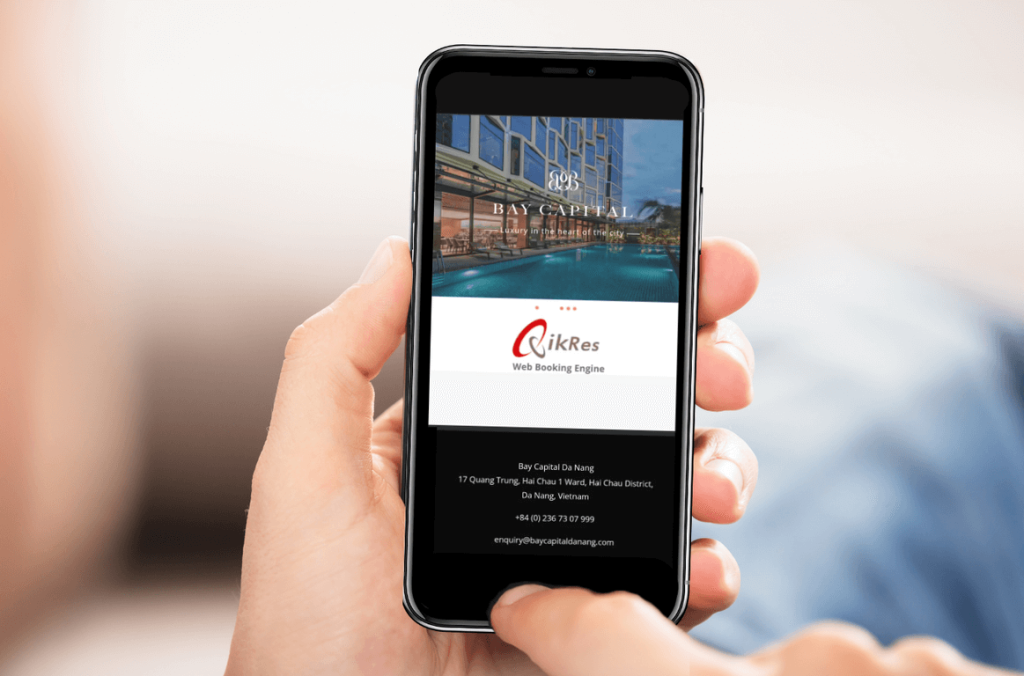Two Ways Guest Communication Booking
Two Ways Guest Communication Booking In this article, we will explore… Booking System That Collects Guest Feedback How To Manage Guest Feedback Through Booking System Importance Of Guest Feedback In Booking System Booking System That Improves Guest Experience Through Feedback Online Booking Platform With Guest Satisfaction Surveys Best Booking System For Managing Guest Reviews Booking System That Collects Guest Feedback In today’s competitive hospitality landscape, understanding guest preferences and experiences is crucial. While booking systems have traditionally focused on streamlining reservations, there is a growing trend towards incorporating guest feedback collection. These innovative systems are transforming how hotels, restaurants, and other hospitality businesses interact with their customers. How To Manage Guest Feedback Through Booking System Guest feedback is an invaluable tool for hotels to enhance their services and maintain a positive reputation. A well-managed booking system can be a powerful platform for collecting, analysing, and responding to guest feedback. Importance of Guest Feedback in Booking System Guest feedback is a goldmine of information. It provides insights into customer satisfaction, identifies areas for improvement and helps businesses tailor their offerings to meet guest expectations. By integrating feedback collection into the booking process, hospitality establishments can gain a deeper understanding of their customers’ needs and preferences. Before diving into the strategies, it is crucial to understand why guest feedback matters. It provides insights into: • Areas of Strength and Weakness• Guest Preferences and Expectations• Opportunities for Improvement• Potential Risks to the Hotel’s Reputation Leveraging Your Booking System for Feedback Modern booking systems offer various methods for collecting guest feedback: Post-stay Surveys Most booking systems allow you to send automated post-stay surveys. Customize these surveys to gather specific feedback on different aspects of the guest’s stay. In-stay Feedback Options Provide opportunities for guests to share feedback during their stay, perhaps through in-room tablets or QR codes linking to online surveys. Review Management Integrate your booking system with review platforms to monitor and respond to guest reviews promptly. Guest Communication Use the booking system to communicate with guests before, during, and after their stay, addressing their concerns and questions. 1. Analysing and Acting on Feedback Centralized Data Collect all feedback into a centralized system for easy analysis. Identify Trends Look for recurring themes in guest feedback to identify areas for improvement. Set Goals Based on the analysis, establish specific goals for enhancing guest satisfaction. Implement Changes Take concrete actions to address issues raised in the feedback. 2. Responding to Guest Feedback Timely Responses Respond to both positive and negative feedback promptly. Personalization Tailor your responses to individual guests, showing you value their input. Problem Resolution For negative feedback, offer solutions and make amends where possible. Public Relations Handle negative feedback professionally to protect your hotel’s reputation. 3. Measuring Success Track Key Metrics Monitor guest satisfaction scores, net promoter scores (NPS), and other relevant metrics. Compare Performance Analyse feedback over time to measure progress. Adjust Strategies Continuously refine your feedback management process based on results. Booking System That Improves Guest Experience Through Feedback A well-designed booking system plays a pivotal role in achieving this goal by providing valuable insights through feedback. By embracing a guest-centric approach and utilizing the power of feedback, hotels can create memorable experiences that drive customer loyalty and advocacy. A well-implemented booking system is the foundation for building a thriving hospitality business. Understanding the Guest Journey A modern booking system should go beyond simple reservations. It should offer a seamless user experience from initial search to post-stay feedback. By collecting data at every touchpoint, hotels can identify areas for improvement and tailor services to individual preferences. 1. The Power of Feedback Feedback is a goldmine of information. A robust booking system should incorporate features that: Encourage Feedback Make it easy for guests to share their opinions through surveys or reviews. Analyse Feedback Utilize data analytics to identify trends and patterns. Implement Changes Use insights to refine services and amenities. 2. Personalization Through Data Leveraging guest data can significantly enhance the guest experience. A booking system that allows for: Personalized Recommendations Suggesting amenities or services based on past preferences. Targeted Offers Providing tailored deals and promotions. Customized Communication Sending relevant information and reminders. 3. Beyond the Booking A truly effective booking system extends its influence beyond the reservation process. It should facilitate: Smooth Check-in and Check-out Offering options like mobile/ tablet check-in and keyless entry. Post-stay Communication Sending thank-you notes and requesting feedback. Loyalty Program Integration Rewarding returning guests with exclusive benefits. Online Booking Platform With Guest Satisfaction Surveys Collecting and analysing guest feedback is invaluable for hotels. It helps identify areas for improvement, highlights strengths, and ultimately enhances the overall guest experience. By integrating surveys into the booking process, hotels can gather real-time insights into guest preferences and expectations. Key Features of a Strong Booking Platform When selecting a booking system with guest feedback capabilities, consider the following features: Customizable Surveys Ability to create tailored surveys to gather specific information. Integration with PMS and CRM platforms Seamless integration to ensure accurate guest data and efficient survey distribution. Real-time Analytics Comprehensive data analysis tools to identify trends, patterns, and areas for improvement. Automated Follow-Ups Response Capabilities Ability to send automated follow-up emails or messages for guests’ feedback, saving time and maintaining consistency. Guest Feedback Management A centralized platform to organize and track guest feedback for easy monitoring. Benefits of Using Guest Satisfaction Surveys Implementing guest satisfaction surveys through an online booking platform can yield numerous benefits: • Improved Guest ExperienceBy addressing feedback promptly, businesses can improve guest experiences.• Increased Guest LoyaltyDemonstrating a commitment to guest feedback fosters trust and encourages repeat business.• Enhanced Operational EfficiencyIdentifying areas for improvement can streamline operations and reduce costs.• Competitive AdvantageGaining valuable insights into guest expectations can help hotels differentiate themselves from competitors.• Targeted MarketingUnderstanding guest preferences allows for personalized marketing campaigns.• Increased Online ReputationPositive reviews and feedback can boost a business’s online reputation. Convert Your Lookers Into Bookers Skip the Middleman, Book Direct: QikRes© – Your Hotel Booking Engine Best […]




